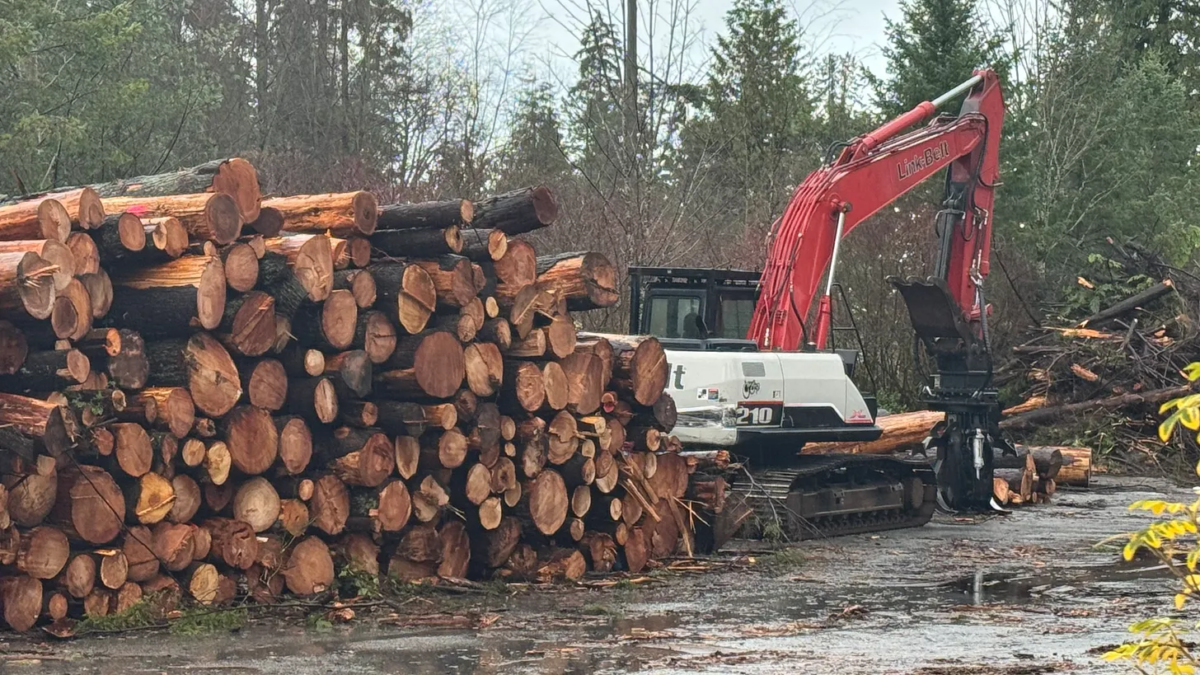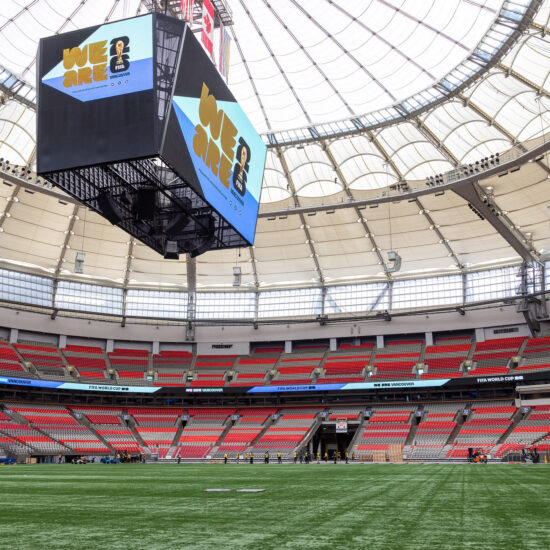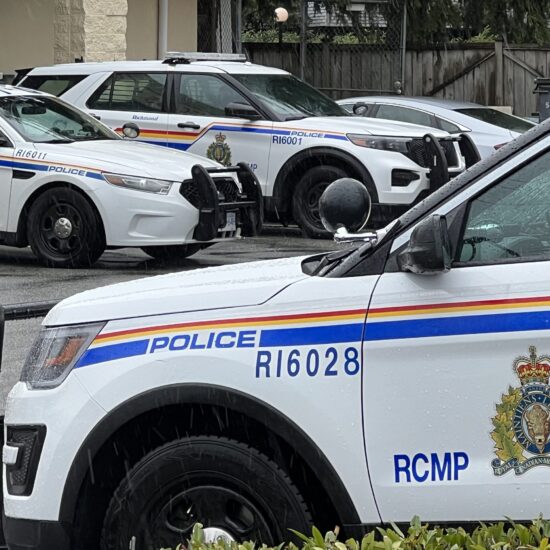
Bob Mackin
A group opposed to logging in Stanley Park is trying again to stop the chainsaws.
The Stanley Park Preservation Society filed a petition Feb. 10 in B.C. Supreme Court, asking a judge to declare that the Vancouver Board of Parks and Recreation and City Council overstepped their powers and order them to quash contracts with B.A. Blackwell and Associates Ltd.
The society and its four members also want “an injunction prohibiting logging in Stanley Park with the exception of trees designated, after individual inspection, as posing an immediate danger to the public.”

The B.A. Blackwell lumber yard near Brockton Oval in Stanley Park, Nov. 5, 2024 (Mackin)
The city says the Hemlock looper moth infestation killed 160,000 trees and it is spending $18 million to chop down dead and dying trees to protect them from falling on the public or becoming fuel for a wildfire.
Five months ago, a judge ruled against the society’s negligence lawsuit. The society took that route, instead of a petition, because there had been no open vote on the program. That changed Oct. 8 at park board and Dec. 9 at city council.
The Feb. 10 petition alleges that the park board, city and its contractors did not use the Wildlife Hazardous Tree Assessors Course (WHTAC) criteria to mitigate the pest infestation. Instead, they used Tree Risk Assessment Qualification (TRAQ) methodology to identify hazardous trees, which the lawsuit calls “incorrect.”
“Only TRAQ Level 1 assessments were performed, which were not sufficient to determine hazard; the city failed to conduct TRAQ Level 2 iInspections of TRAQ Level 3 inspections, despite the fact that at least a TRAQ Level 2 assessment is required to determine hazard.”
The petition also alleged that the city failed to document, through tree risk assessment reports, “trees that were removed or mitigated.”
The petition pointed out the park board’s long-term agenda is to bring Stanley Park back to “precolonial composition” and Comm. Tom Digby of the Green Party called hemlocks a “doomed” species that should be replaced with Douglas fir, cedar, and red alder.
“The Stanley Park forest lies within the coastal western hemlock biogeoclimatic. zone, wherein coastal western hemlocks are naturally the predominant species,” the petition states.
Additionally, the petition says Blackwell’s report that justified the logging operation is scientifically flawed and unreliable.
“The Blackwell Report fails to account for the collateral damage caused by the tree removal work. Specifically, extensive machine logging fragments the forest floor, reduces canopy coverage, disrupts and damages root systems, increases insolation and ambient temperatures, and exposes remaining trees to wind tunnelling and blowdown.”
In fall 2023 and winter 2024, Blackwell subcontractors took down more than 7,200 trees. According to statistics released under freedom of information, crews removed 1,305 trees — 331.84 cubic metres of merchantable logs — across 41.1 hectares of the park between October and December 2024.
The allegations have not been tested in court and the city and park board have yet to respond.
NEW: Subscribe to theBreaker.news on Substack. Find out how: Click here.










